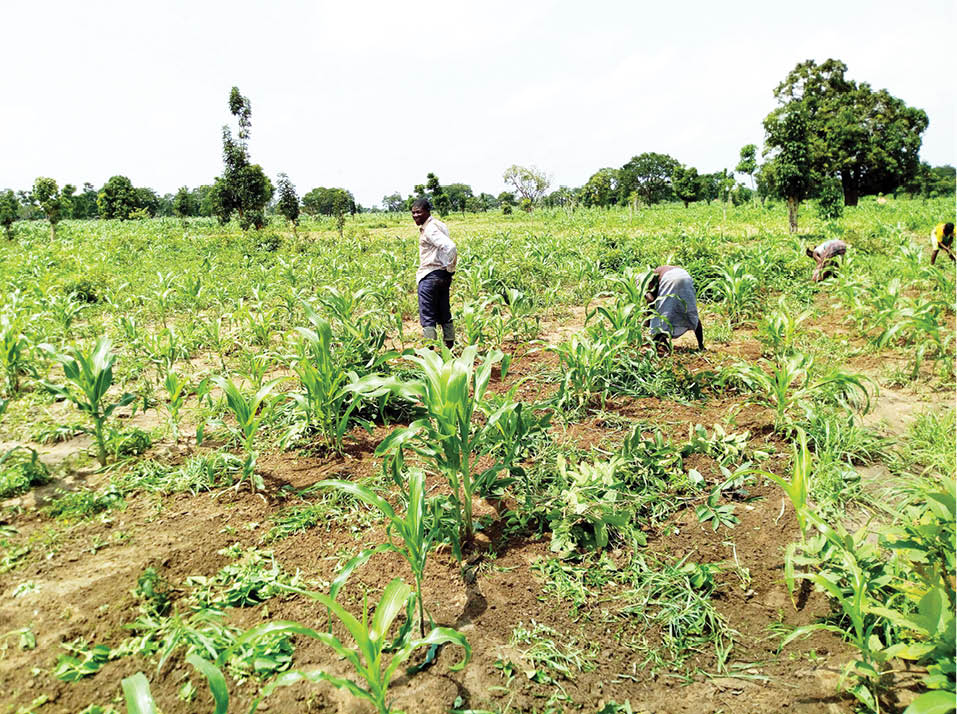Why farmers should depend less on rain
Experts in the agricultural sector are advising famers to reduce dependence on rain-fed agriculture and embrace dry season farming. However, cross sections of the experts as well as the farmers are worried about the deteriorating condition of the nation’s irrigation facilities. How zero forex for food, fertilizer import can work—Farmers, experts ‘Underrated crops that can […]

File photo
Experts in the agricultural sector are advising famers to reduce dependence on rain-fed agriculture and embrace dry season farming.
However, cross sections of the experts as well as the farmers are worried about the deteriorating condition of the nation’s irrigation facilities.
- How zero forex for food, fertilizer import can work—Farmers, experts
- ‘Underrated crops that can fetch farmers money’
They are worried that all year round farming was only possible with good irrigation in place.
A Lagos-based greenhouse farmer, Mr Chuba Chukwuka, is of the opinion that to boost productivity, local crop farmers must depend less on rain-fed agriculture.
He said due to the effects of climate change on weather conditions, it was not advisable for local farmers to depend on seasonal rains to cultivate crops.
“There are so many advantages for local farmers, who do not depend on a rain-fed agricultural system in present times.
“In the past, farmers could determine the rainy season from the dry season and they know the best times to plant their crops.
“However, in present times, the rainy season is not easily determined due to climate change effects.
“In those days, we could depend on the rains and the farmers know what periods to operate and cultivate our crops, but now it is not so.
“This year, lots of farmers planted when the rain started, but suddenly the rain ceased, which has caused them to make so many losses because the plants could not survive,” Chukwuka said.
Mr Lattef Abubakar, an agriculturist and owner of Lateef farms near Ilorin, Kwara State, noted that the only solution to the recurrence flooding of farmlands in many parts of the country is to embrace dry season farming.
He said apart from the flood issue, irrigation would enable the farmers to cultivate and produce crops all year round irrespective of the season or weather conditions.
“I understand the challenge of our irrigation facilities. They are not readily available to many farmers, especially the small scale ones.
“I will share my experience about how 1 started. I dug a well, got a pumping machine and that is how I started with vegetables, tomato and pepper before you know it, the produce became hot cake. I got some money and called the local borehole drillers. They dug my borehole with just N120,000 and the rest is now history.
“What I am saying in essence is that with less than N100,000, they can start something,’’ he advised.
According to him, with good irrigation system, farmers will never be taken unawares but will always be sure that the crops will do well whether there is rain or not.
Another farmer, Habibu Abdullahi, observed that with what is going on now, full dependence on rain-fed agriculture had made a lot of local farmers to suffer losses on the crops and also resulted in increased prices of food produce.
According to Mr Chuba Chukwuka, the Lagos farmer, “The flip side of a rain-dependent agriculture system is that the prices of food items and produce have gone up.
“For example, the prices of Ugwu and Okra crashed at the start of the rains but now, their prices have gone up again because most farmers that depended on rain could no longer produce and lost their crops,” he told the News Agency of Nigeria in Lagos.
